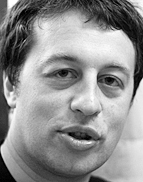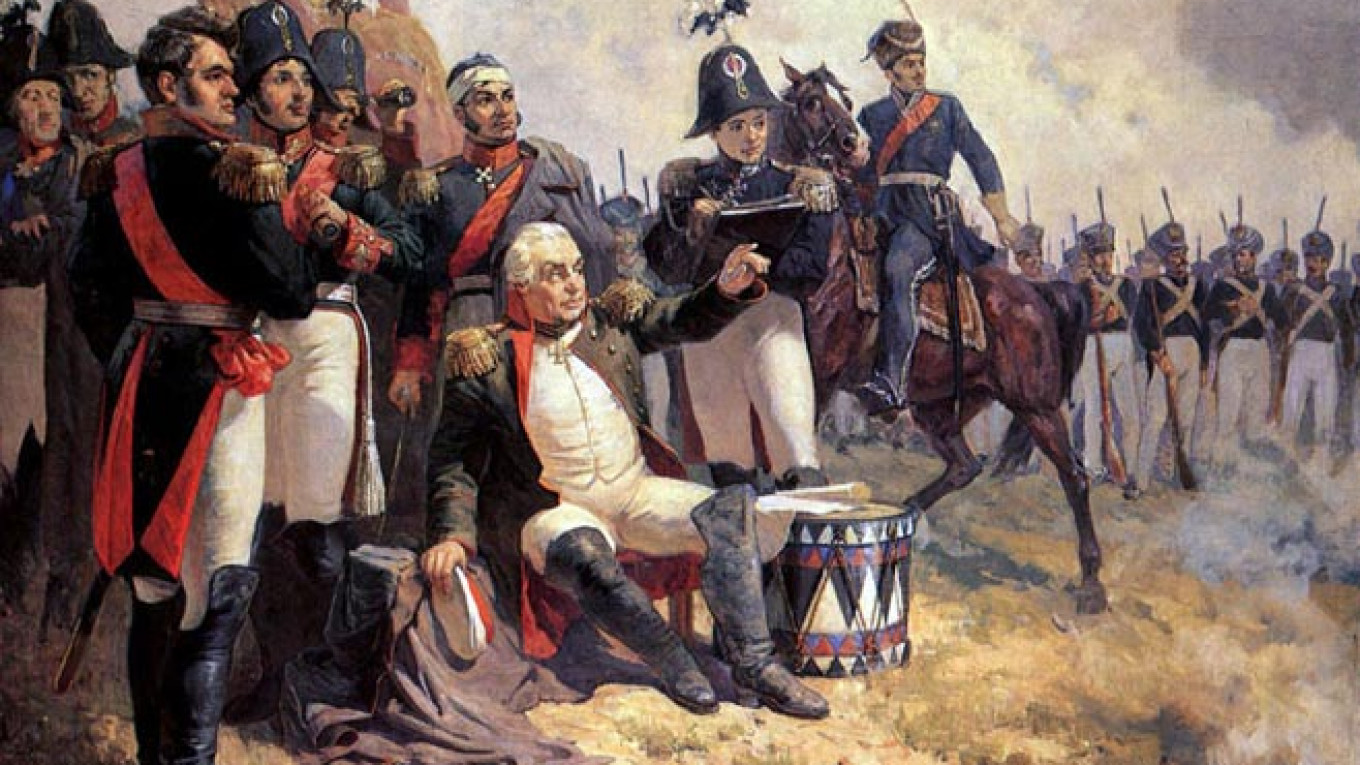 Konstantin Sonin
Konstantin SoninSunday marked the 200th anniversary of the Battle of Paris, when Russian, Prussian and Austrian troops took control of the French capital and forced Napoleon to abdicate. I had honestly expected Russia to celebrate the day with fireworks, parades and church services — or at least with numerous newspaper articles, television programs, conferences and roundtable discussions. After all, that Russian victory put an end to years of conflict and gave Moscow its first opportunity to play an important role in European history. However, the Russian media was largely silent on the topic.
Every Soviet schoolchild learned of the Patriotic War of 1812, even though it only refers to the end of the French campaign on Russian soil. The war lasted for almost another 18 months, with the Russian Army taking active part. It is strange that we focus only on that earlier period of the war. After all, we do not say that World War II ended for Russia in the summer of 1944, when the frontline was pushed back to the Soviet Union's western border.
The end of the Napoleonic Wars was noteworthy not only for the victory of Russian Army — a number of such victories came both before and after that date as well — but also because it led to the greatest victory in the history of Russian diplomacy. The Congress of Vienna held in 1814 to 1815 restructured Europe in such a way that peace prevailed among the major powers for almost a full century. The Crimean War in 1853 to 1855 made that balance of powers even more enduring. And it happens that Russian diplomats, led by Tsar Alexander I, played a key role in that success.
Russia tends to forget this major victory in part because the Soviet leadership denigrated the importance of tsarist achievements. Despite Napoleon's worldwide fame as a formidable opponent, the Soviets considered Russia's victory over him as inappropriate material for propaganda. In fact, that view has held consistently from tsarist times, through the Soviet period and even right up until the present.
Several of the officers involved in the capture of Paris — General Eugen of Wurttemberg, Count Louis Alexandre Andrault de Langeron and Field Marshall Peter Wittgenstein — are remembered by history buffs more for the fact that they were foreign-born than for their critical role in that battle. In this sense, history has been kinder to Field Marshal Count Barclay de Tolly, but less so to Count von Bennigsen, the first of Russia's generals whose troops managed to hold ranks when battling soldiers under Napoleon's personal command.
There are also other reasons for this collective amnesia. For example, British historian Dominic Lieven refers to what he calls the "Tolstoy factor." His great novel "War and Peace" tells his readers that generals and emperors are nothing, and that the people are everything. Because of Tolstoy, we think of the War of 1812 as a battle between peoples and not between states. And more important, we imagine that the war ended where the book's description of it ends — as Russian troops reach the borders of the Russian empire.
And finally, our modern discourse is so fixated on the victory in World War II that it leaves almost no room to remember victories in other wars. But perhaps the current surge of patriotism will revive interest in them.
Konstantin Sonin, a columnist for Vedomosti, is professor of economics and vice rector at the Higher School of Economics in Moscow.
A Message from The Moscow Times:
Dear readers,
We are facing unprecedented challenges. Russia's Prosecutor General's Office has designated The Moscow Times as an "undesirable" organization, criminalizing our work and putting our staff at risk of prosecution. This follows our earlier unjust labeling as a "foreign agent."
These actions are direct attempts to silence independent journalism in Russia. The authorities claim our work "discredits the decisions of the Russian leadership." We see things differently: we strive to provide accurate, unbiased reporting on Russia.
We, the journalists of The Moscow Times, refuse to be silenced. But to continue our work, we need your help.
Your support, no matter how small, makes a world of difference. If you can, please support us monthly starting from just $2. It's quick to set up, and every contribution makes a significant impact.
By supporting The Moscow Times, you're defending open, independent journalism in the face of repression. Thank you for standing with us.
Remind me later.








